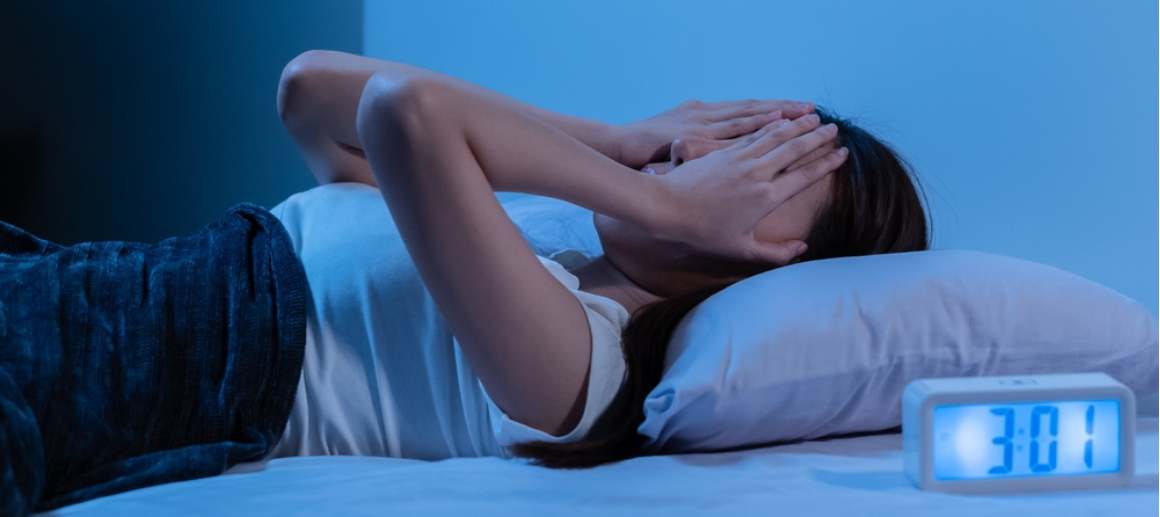Sleep Anxiety
Last updated:
Published:
Sleep anxiety is a common issue that affects many individuals, causing disruptions in their sleep patterns and overall well-being. In this blog post, we will delve into the various aspects of sleep anxiety to gain a deeper understanding of how it can disrupt one's sleep and overall well-being.
Contents:
- Understanding Sleep Anxiety
- The Connection Between Anxiety Disorders and Sleep Disturbances
- How Stress Impacts REM Sleep
- Diagnosing Sleep-related Anxieties
- Cognitive-Behavioral Therapy for Insomnia-related Anxieties
- Medications for Managing Sleep Anxiety
- Alternative Therapies for Sleep Anxiety
- Good Sleep Hygiene Practices
- Magnesium Supplements for Sleep Anxiety Relief
- FAQs in Relation to Sleep Anxiety
We will examine how various anxiety disorders, such as Generalized Anxiety Disorder, Panic Disorder and Social Anxiety Disorder, can impact sleep. Moreover, we'll explore the link between Obstructive Sleep Apnea (OSA) and mental health issues.
Additionally, you'll learn about Cognitive-Behavioral Therapy (CBT) for insomnia related to anxiety disorders as well as strategies for managing stressors affecting sleep quality like deep breathing exercises and meditation. We will also examine magnesium supplementation's role in promoting better slumber.
At last, we'll look into meds employed for treating sleep-related anxiety such as benzodiazepines and SSRIs; alternative treatments available to those suffering from this distressful issue; and when expert assistance might be essential.
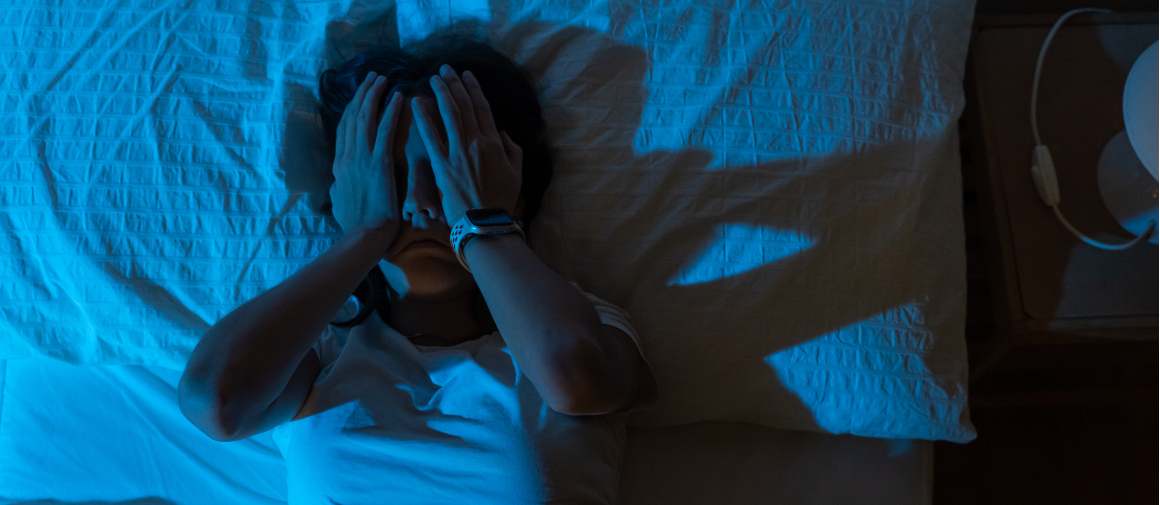
Understanding Sleep Anxiety
It often stems from anxiety disorders such as Generalized Anxiety Disorder, Panic Disorder, Social Anxiety Disorder, Specific Phobias, Obsessive-Compulsive Disorder (OCD), and Post-traumatic Stress Disorder (PTSD). This emotional distress can lead to sleep disturbances like insomnia or poor quality of rapid eye movement (REM) sleep.
The Connection Between Anxiety Disorders and Sleep Disturbances
Anxiety disorders are characterized by excessive worry or fear that interferes with daily life. These mental health conditions can cause various symptoms such as rapid breathing, extreme fear, vivid dreams, and difficulty falling asleep. When left untreated, these issues may result in chronic insomnia or other sleep disorders.
A study published in the journal Sleep Medicine Reviews found that individuals with generalized anxiety disorder were more likely to experience disrupted REM sleep than those without an anxiety disorder diagnosis. Disrupted REM sleep has been linked to increased feelings of irritability during the day and decreased ability to cope with stressors effectively.
How Stress Impacts REM Sleep
Stress plays a significant role in causing both short-term and long-term disruptions in our sleeping patterns. According to the American Psychological Association, high levels of stress contribute directly to poor sleep habits by increasing arousal at night while decreasing relaxation necessary for a restful slumber.
When experiencing unease, our physiques can generate hormones such as cortisol and adrenaline that may disrupt sleep. These hormones not only make it difficult to fall asleep but also disrupt the natural sleep cycle, leading to lighter and less restorative sleep. As a result, individuals with anxiety disorders may find themselves waking up frequently throughout the night or struggling to stay asleep for an extended period.
- Sleep Habits: Establishing a consistent bedtime routine can help regulate your body's internal clock and improve overall sleep quality.
- Mental Health: Addressing underlying mental health problems such as anxiety disorders through therapy or medication may lead to better sleep outcomes in the long run.
- Sleep Environment: Creating a comfortable sleeping space free of distractions is essential for promoting relaxation before bed.
Incorporating these strategies into your daily life could potentially alleviate some of the negative impacts that stress has on REM sleep and ultimately help you achieve more restful nights' slumber despite any existing anxiety issues you might be facing.
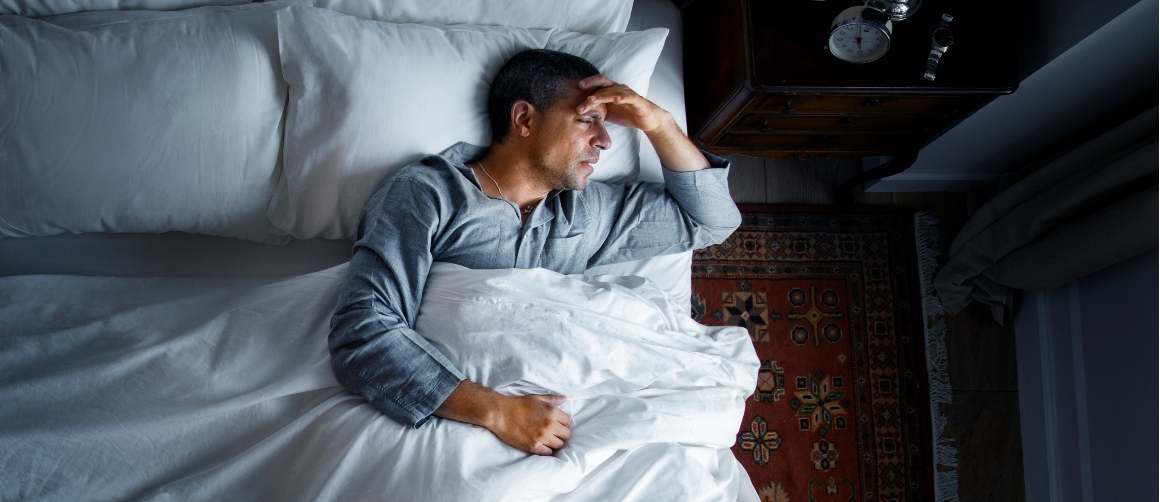
Diagnosing Sleep-related Anxieties
Sleep anxiety can significantly impact an individual's daily life, making it essential to accurately diagnose the issue. To determine whether a person is suffering from sleep-related anxieties, healthcare providers typically perform physical exams, review patients' medical histories, and evaluate their symptoms. Proper diagnosis is crucial for determining the most effective treatment plan that will help those who struggle with insomnia learn how to sleep better despite experiencing anxious feelings.
Importance of Accurate Diagnosis in Managing Anxiety-induced Sleeping Difficulties
Accurate diagnosis is essential to create individualized treatment plans that address each patient's particular needs and ensure they receive the necessary care for managing their sleeping difficulties related to anxiety disorders. Accurate diagnosis enables healthcare professionals to develop personalized treatment plans that address both the emotional distress caused by anxiety-induced sleeping difficulties and any physiological factors contributing to disrupted rest patterns.
In some cases, underlying issues like sleep apnea may contribute to poor sleep quality and exacerbate existing anxieties. Therefore, obtaining a comprehensive evaluation from a qualified professional is vital for addressing both the emotional distress caused by these experiences and any potential physiological factors contributing to disrupted rest patterns.
Biofeedback Exercises for Improving Sleep Quality
- Mindfulness meditation: Practicing mindfulness meditation before bedtime has been shown to reduce overall levels of worry while promoting relaxation techniques conducive towards achieving more restful slumber.
- Deep breathing exercises: Engaging in deep breathing exercises can help individuals experiencing anxiety-induced sleep disturbances by promoting relaxation and reducing rapid breathing associated with feelings of extreme fear or panic.
- Talk therapy: For some, talk therapy sessions with a mental health professional may provide an opportunity to address the root causes of their anxieties while learning new coping strategies for managing daily stressors that contribute to poor sleep habits.
Incorporating biofeedback exercises into one's routine can be beneficial in improving overall sleep quality. These techniques work by teaching individuals how to control their body's physiological responses (such as heart rate and muscle tension) when faced with triggers that cause them to feel anxious or experience difficulty falling asleep. By gaining greater awareness and control over these reactions, people struggling with sleep-related anxieties can learn how to effectively manage their symptoms and achieve more restful nights.
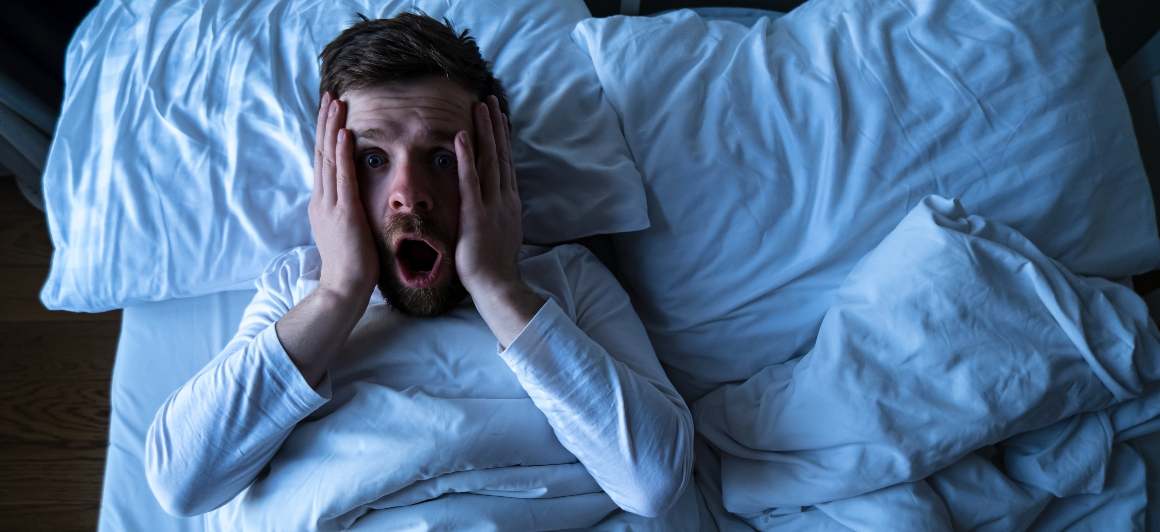
Cognitive-Behavioral Therapy for Insomnia-related Anxieties
Cognitive-behavioral therapy (CBT) has proven effective in treating both insomnia-related anxieties by decreasing overall levels of worry while promoting healthy habits. CBT helps individuals identify negative thought patterns that contribute to their inability to fall asleep or stay asleep and replace them with healthier alternatives.
Identifying Negative Thought Patterns Causing Difficulty Falling Asleep
One crucial aspect of CBT is recognizing the negative thought patterns that may be contributing to sleep anxiety. Anxiousness concerning daily life, generalized anxiety disorder, social unease, panic attack or post-traumatic stress can frequently lead to sleep difficulties. Some common examples include:
- Fear of not getting enough sleep and its impact on your health or performance at work.
- Anxiety over racing thoughts preventing you from falling asleep.
- Negative beliefs about your ability to cope with a lack of restful sleep.
Replacing Unhealthy Thoughts with More Constructive Ones
In order to improve sleeping habits and reduce feelings associated with sleep disturbances such as chronic insomnia or difficulty falling asleep due to rapid breathing caused by extreme fear, it's essential for individuals undergoing CBT treatment plans to learn how they can replace these unhealthy thoughts with more constructive ones. This process involves:
- Evaluating the accuracy: Determine if the anxious thought is based on facts or assumptions.
- Rationalizing fears: Remind yourself that anxiety is a normal part of life and doesn't necessarily mean something terrible will happen.
- Reframing thoughts: Replace negative beliefs with more positive or neutral alternatives. For example, instead of thinking "I'll never fall asleep," try "It may take me some time to relax, but eventually I will drift off."
Mindfulness meditation and other relaxation strategies may assist in managing sleep-related issues associated with psychological afflictions, such as GAD or PTSD. By learning how to manage these anxious feelings through cognitive behavioral therapy and other evidence-based approaches like talk therapy, individuals struggling with sleep problems due to anxiety disorders can begin experiencing better quality rest and improved overall mental health.
Medications for Managing Sleep Anxiety
Sleep anxiety can be a debilitating condition that affects an individual's ability to fall asleep or stay asleep. In certain cases, medications may be essential to help handle these indications and enhance sleep quality. Before beginning any new medication regimen, it is important to speak with your healthcare provider.
Types of Medications Used in Treating Sleep Anxiety
Benzodiazepines are one class of medications commonly prescribed for treating anxiety disorders, including sleep anxiety. These drugs work by enhancing the effects of GABA, a neurotransmitter responsible for calming the central nervous system. Examples include diazepam (Valium), lorazepam (Ativan), and alprazolam (Xanax). However, benzodiazepines should only be used short-term due to their potential for dependence and other side effects.
Selective serotonin reuptake inhibitors (SSRIs), such as fluoxetine (Prozac) and sertraline (Zoloft), are another type of medication often prescribed for individuals experiencing generalized anxiety disorder or panic disorder. SSRIs work by increasing serotonin levels in the brain, which helps regulate mood and promote relaxation.
The Importance of Consulting a Doctor Before Starting Medication
While medications can provide relief from sleep-related anxieties, it is crucial to always consult your doctor before beginning any new treatment plan. Some medications could potentially exacerbate sleeping problems or interact negatively with other prescriptions you may already be taking. Your healthcare provider will be able to determine the most appropriate medication and dosage for your specific needs.
Additionally, it is essential to follow your doctor's instructions regarding how long you should take a particular medication. Some drugs, such as benzodiazepines, can lead to dependence if used for extended periods or taken in higher doses than prescribed. Be sure to discuss any concerns about potential side effects or dependency with your healthcare provider.
Non-pharmacological Treatment Options
In some cases, non-pharmacological treatment options may be more suitable for managing sleep anxiety. These alternatives include:
- Forming a regular sleep routine and developing an atmosphere that facilitates tranquility may aid in attaining higher quality slumber.
- Cognitive-behavioral therapy (CBT): This form of talk therapy helps individuals identify negative thought patterns that contribute to their inability to fall asleep or stay asleep and replace them with healthier alternatives.
- Relaxation techniques: Practicing deep breathing exercises or mindfulness meditation before bed can help reduce anxiety levels and improve overall sleep quality.
It is important to note that sleep disorders, such as sleep apnea or chronic insomnia, may require additional medical intervention beyond medication or non-pharmacological treatments. If you experience anxiety or other mental health conditions that interfere with your daily life, it is essential to seek professional help from a qualified healthcare provider.
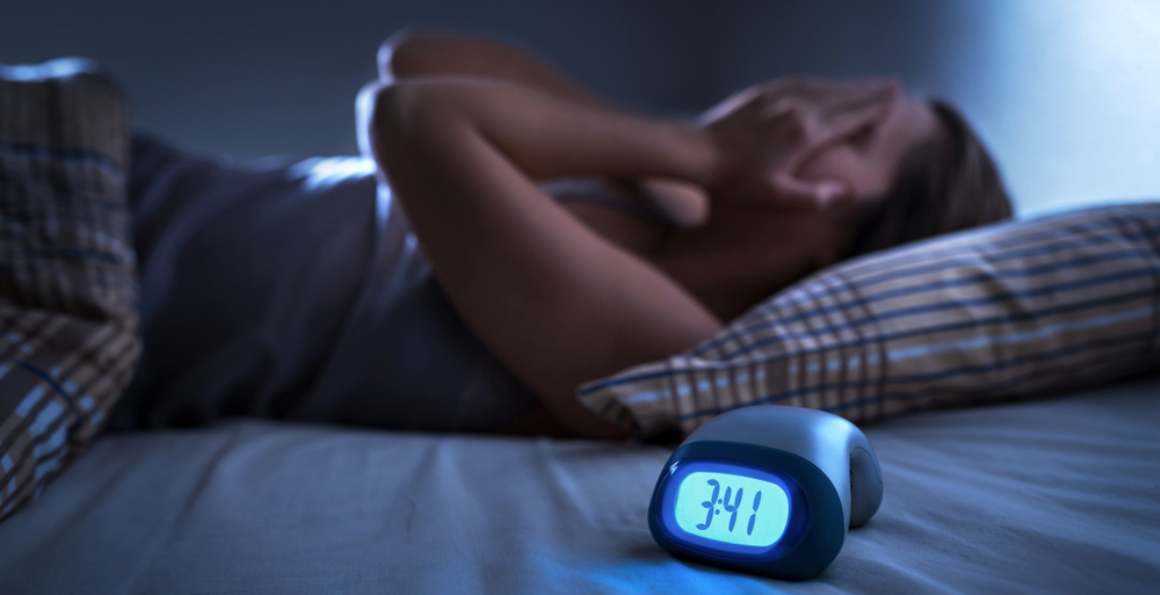
Alternative Therapies for Sleep Anxiety
Sleep anxiety can be managed through various alternative therapies that promote relaxation and help alleviate feelings of stress. These techniques are non-pharmacological approaches that encourage a sense of calm, enabling individuals to achieve better sleep quality.
Meditation and Deep Breathing Exercises for Relaxation
Meditation techniques, such as mindfulness meditation, have been proven effective in reducing anxiety levels and improving overall mental health. By focusing on the present moment without judgment, individuals can learn to let go of anxious thoughts hindering their ability to fall asleep. Additionally, deep breathing exercises can help regulate rapid breathing often associated with anxiety disorders while promoting relaxation before bedtime.
Calming Activities and Daytime Worry Scheduling
Incorporating calming activities into one's daily life is another way to manage sleep anxiety effectively. Engaging in relaxing hobbies like reading or listening to soft music before bed can create a peaceful atmosphere conducive to restful slumber. Furthermore, scheduling specific times during the day for worry sessions allows people who experience anxiety at night an opportunity to address their concerns proactively rather than allowing them to interfere with their sleep patterns.
- Create a pre-bedtime routine involving calming activities like reading or listening to soothing music.
- Schedule designated "worry time" during daylight hours instead of ruminating over concerns when trying to fall asleep at night.
- Consider practicing yoga or engaging in other gentle physical exercises earlier in the evening as part of your wind-down routine.
It's essential to remember that every individual is unique, and what works for one person may not be effective for another. Experimenting with different relaxation techniques can help you discover the most suitable approach to managing your sleep anxiety.
Additional Resources for Sleep Anxiety Relief
If you're looking for more information on alternative therapies and strategies to improve your sleep quality while dealing with anxiety, consider exploring these resources:
- Sleep Foundation - Sleep Hygiene Tips
- Anxiety and Depression Association of America (ADAA) - Sleep Disorders Information
- National Institute of Mental Health (NIMH) - Anxiety Disorders Overview
Good Sleep Hygiene Practices
Practicing good sleep hygiene is crucial in managing sleep anxiety. By incorporating healthy habits into your daily routine, you can significantly improve the quality of your rest and reduce the impact of anxiety on your sleep patterns. In this section, we'll go over some key pointers for establishing a dependable sleep schedule and setting up an atmosphere that encourages relaxation.
Maintaining a Consistent Bedtime Routine
A regular bedtime routine helps signal to your body that it's time to wind down and prepare for sleep. This consistency allows you to fall asleep more easily and experience fewer disruptions throughout the night. To establish a stable routine, consider implementing these practices:
- Create a schedule: Go to bed at the same time every night and wake up at the same time each morning - even on weekends.
- Avoid stimulants: Limit caffeine intake during late afternoon or evening hours as it may interfere with falling asleep or cause poor sleep quality.
- Eat light before bed: Consuming heavy meals close to bedtime can lead to discomfort while trying to fall asleep; opt for lighter snacks instead if needed.
- Incorporate relaxation techniques: Engage in calming activities such as reading, taking warm baths, or practicing mindfulness meditation before going to bed.
Creating an Environment Conducive to Relaxation
The sleeping environment is a major factor in how effectively one can relax when it's time to sleep, thus creating an atmosphere that facilitates relaxation should be taken into account. A comfortable space encourages better slumber and helps alleviate sleep anxiety. Consider the following tips for creating a soothing atmosphere:
- Optimize your bedroom temperature: Keep your room cool, ideally between 60-67°F (15-19°C), as this has been shown to promote better sleep.
- Eliminate noise disruptions: Use white noise machines or earplugs to block out any potential disturbances that may disrupt your rest.
- Maintain a dark environment: Invest in blackout curtains or wear an eye mask to minimize exposure to light while you're trying to fall asleep.
- Prioritize comfort: Choose bedding materials and pillows that provide adequate support and contribute positively towards overall relaxation during bedtime hours.
For those suffering from anxiety disorders, such as generalized anxiety disorder, panic disorder, social anxiety disorder and post-traumatic stress disorder, good sleep hygiene practices can be beneficial in improving the quality of rest and managing symptoms. Remember to always consult with a healthcare professional if you continue experiencing difficulty falling asleep despite implementing these strategies.
Magnesium Supplements for Sleep Anxiety Relief
Research suggests that magnesium supplements might be beneficial in improving both sleep quality and reducing symptoms related to anxiety disorders. It's essential always consult your healthcare provider when considering any dietary supplement additions like magnesium for managing sleeping difficulties caused by stress.
Types of Magnesium Supplements Suitable for Aiding Better Slumber
Magnesium is a vital mineral involved in various bodily functions, including regulating neurotransmitters responsible for promoting relaxation and restful sleep. There are several types of magnesium supplements available on the market, but some may be more effective than others when it comes to alleviating sleep anxiety:
- Magnesium glycinate: This form of magnesium is highly bioavailable and has calming effects on the brain, making it an excellent choice for those struggling with insomnia due to anxiety.
- Magnesium citrate: Although not as easily absorbed as magnesium glycinate, this type still offers benefits such as muscle relaxation and improved overall sleep quality.
- Magnesium malate: Known for its ability to combat fatigue during the day while promoting better slumber at night, this form can help reduce feelings of exhaustion often experienced by individuals with chronic insomnia or poor sleep habits.
To determine which type of magnesium supplement would work best for you, consider consulting a healthcare professional who can assess your individual needs based on factors such as age, medical history, current medications being taken (if any), and specific symptoms experienced relating to both mental health conditions like generalized anxiety disorder or panic disorder alongside physical manifestations like rapid breathing or vivid dreams associated with disrupted sleep patterns.
Consulting Your Healthcare Provider About Using Magnesium
Before starting any new supplement regimen, it's crucial to consult your healthcare provider. They can help determine the appropriate dosage and ensure that there are no potential interactions with existing medications or underlying health conditions. Additionally, they may recommend other lifestyle changes or treatments such as improving sleep hygiene, practicing mindfulness meditation, or undergoing cognitive-behavioral therapy to further enhance your ability to manage anxiety-related sleeping difficulties effectively.
Incorporating magnesium into a comprehensive approach to addressing sleep-related anxiety can be advantageous, potentially reducing the symptoms of conditions like PTSD or social anxiety disorder and aiding in achieving more restful nights. By working closely with a qualified healthcare professional and exploring different options tailored specifically towards individual needs, those struggling with chronic insomnia due to heightened levels of emotional distress can begin taking steps towards achieving improved overall well-being through more consistent and restorative slumber experiences night after night.
FAQs in Relation to Sleep Anxiety
What Causes Anxiety About Sleeping?
Anxiety about sleeping, also known as sleep anxiety, can be caused by various factors such as stress, mental health disorders like generalized anxiety disorder or panic disorder, and poor sleep habits. It may also result from a fear of not getting enough restorative sleep or negative experiences related to bedtime.
Is There a Connection Between Anxiety and Sleep?
Yes, there is a strong connection between anxiety and sleep. Anxiety can lead to difficulty falling asleep or staying asleep due to racing thoughts and increased arousal levels. Conversely, lack of quality sleep can exacerbate existing anxiety symptoms or contribute to the development of new anxieties.









